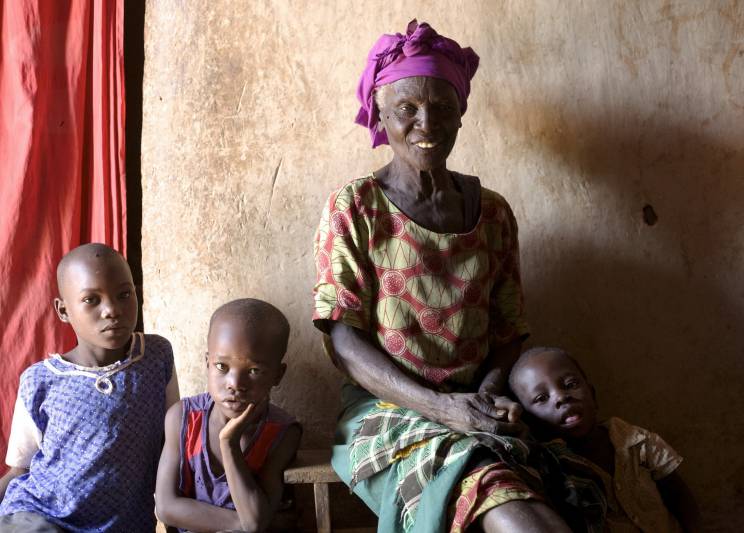
The 61st UN Commission on the Status of Women (CSW) in March was vibrant with the sound of female voices from many continents. It showed the strength of the determination to make progress on women claiming their rights, especially in the context of the world’s current uncertainty.
As thousands of civil society groups gathered in New York alongside government representatives, parliamentarians, academics and others, the message from the participants was clear: we will not give up what we have gained over the decades and, most significantly, human rights are not optional.
Age International, the UK member of the HelpAge International global network, was among those voices. We were there to ensure the discussions, and the agreed conclusions produced by member states at the end of it, paid attention to older women. They have previously not been visible enough at CSW, and we are making the case that their rights are equally worth talking about.
Women and unpaid care
Under the theme of “women’s economic empowerment in the changing world of work”, the panellists and negotiators turned to the themes of unpaid care and social protection again and again. These are essential factors in understanding women’s lives and ensuring their income security and independence.
Although much of the focus was on labour force participation, awareness was raised on the need for state investment in social care and childcare to relieve some of the unpaid work that women tend to shoulder. Women’s rights groups have long argued for recognition of the unpaid care that is currently taken for granted, and at CSW the message started to come through that these people need support.
There is a growing understanding that gender gaps need to be bridged in social protection, including the gender pension gap. As it stands, older women are far less likely to have access to pensions than older men, largely because they have taken on unpaid care work throughout their lives. When they do access pensions, the income is lower. It is welcome news that the agreed conclusions have recognised the need for universal access to pensions to address this inequality.
Are older women’s experiences understood?
But there is a crucial missing piece. Older women are still not being explicitly recognised beyond the stereotype of would-be welfare recipients. They are not being seen as multidimensional human beings, as complex people who have had varying paid and unpaid work patterns, different occupations and diverse health statuses.
They all make different contributions to their families, communities and economies, but one thing unites these older women: they do not have full access to their rights.
They are often unpaid primary carers for spouses, children and grandchildren. Aside from being rights holders and often workers in the informal economy themselves, their unpaid care work often frees up younger women to enter the workforce.
Of course, most people need care at some point in their lives, and it is crucial that governments make this available. But today’s reality is that often the older men and women who need care are being cared for by other older people, and particularly older women. Policy still largely casts older people as passive recipients of care and does not show the bigger picture that they are often caregivers too.
We need to open up the discussion to older women and see them for who they really are, what they do day-to-day, and how their experiences in earlier years have affected how they live now. Older women have the same rights to health, education, work and income as women of any age, but what is needed to realise their rights and support their contributions may be different.
Older women are more likely to be living with multiple, chronic health conditions while also providing care to another person. In sub-Saharan Africa, many older women are caring for grandchildren or others orphaned by the HIV and AIDS epidemic. They may be grieving for their own children while dealing with the loss experienced by the child they are caring for. In cases such as these there is a clear need for psychological support. Older women tend to experience high levels of poverty, and they may experience anxiety about providing food, medicine or school costs for those in their care.
CSW61 gives us momentum, alongside the SDGs and previous agreements such as the Beijing Platform for Action. We must use these commitments to build on policy makers’ understanding of women of all ages, to hold governments to account, and to ensure gender equality means gender equality for all women at all stages of their lives.
